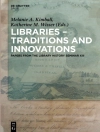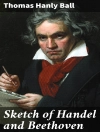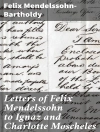In ‘Letters of Felix Mendelssohn-Bartholdy from 1833 to 1847, ‘ readers are invited into the intimate world of one of the 19th century’s most revered composers. This collection reveals Mendelssohn’s artistic journey through his correspondence, highlighting his reflections on creative processes, his relationships with contemporaneous musicians, and his observations on the socio-cultural milieu of the time. Mendelssohn’s epistolary style is both articulate and emotive, providing a vivid lens into his professional aspirations and personal struggles, thus situating his work within Romanticism’s broader artistic tendencies. Felix Mendelssohn-Bartholdy, born in 1809 in a cultured Jewish family, was nourished by rich artistic influences that undoubtedly shaped his perspective. His travels across Europe, keen interest in literature, and engagement with various composers culminated in profound insights that he eloquently shared through his letters. These correspondences not only reflect his musical genius but also his passionate belief in the unifying power of music amid the throes of burgeoning nationalism. This volume is a must-read for anyone interested in the intersections of music, culture, and history. It serves both as a testament to Mendelssohn’s genius and as an accessible entry point for those wishing to grasp the complexities of the Romantic period’s musical landscape. Delve into Mendelssohn’s letters to experience the thoughts of a true luminary.
लेखक के बारे में
Felix Mendelssohn-Bartholdy (1809–1847), known primarily for his prolific contributions to music as a composer, pianist, and conductor of the early Romantic period, also left behind a treasure of written correspondence. His literary output, though overshadowed by his musical compositions, provides a window into the intellect and sensibilities of one of the 19th century’s most refined artistic minds. Born Jakob Ludwig Felix Mendelssohn Bartholdy in Hamburg, Germany, he was part of a notable Jewish family; his grandfather Moses Mendelssohn was a prominent philosopher. Felix was a prodigious talent from a young age, evidencing not only extraordinary musical ability but also a keen intellect and a facility with language. His ‘Letters from 1833 to 1847’ offer a glimpse into his personal world, articulating his insights on culture, art, and the people he encountered during his extensive travels across Europe. These letters are treasured for their eloquent reflection of the Romantic era’s artistic ethos, their intimate tone, and their vivid portrayal of a Europe in flux. They complement Mendelssohn’s musical legacy, which includes works such as the ‘Hebrides Overture’, ‘Scottish’ and ‘Italian’ Symphonies, and the incidental music for ‘A Midsummer Night’s Dream’, underscoring his role as a pioneering figure in the cultural landscape of his time.












